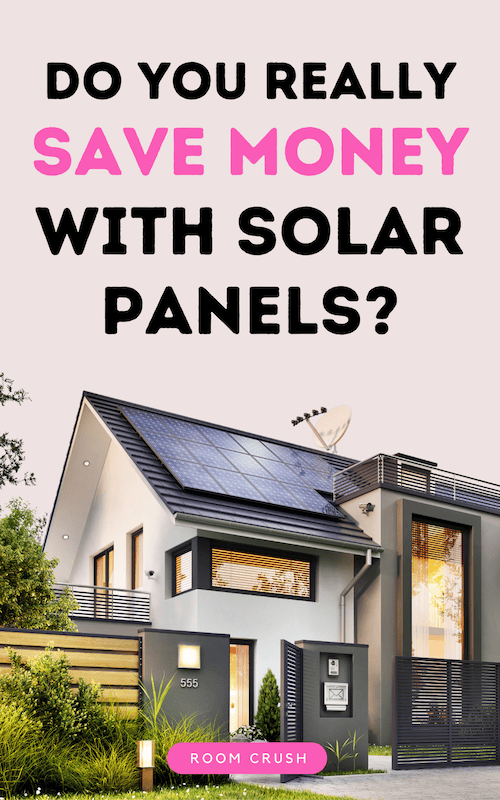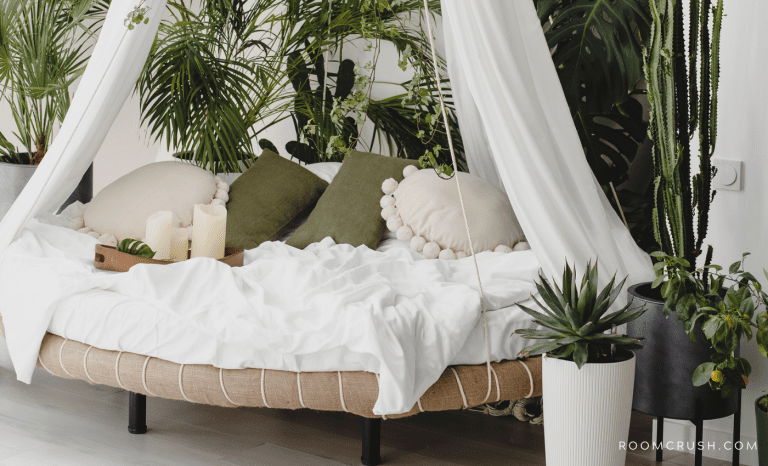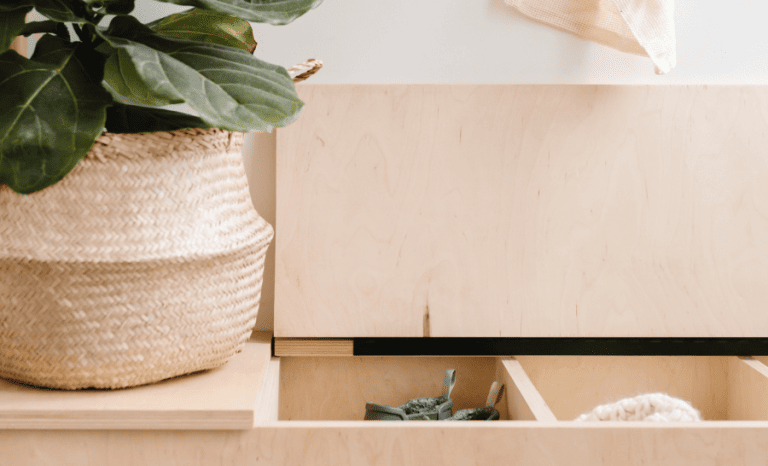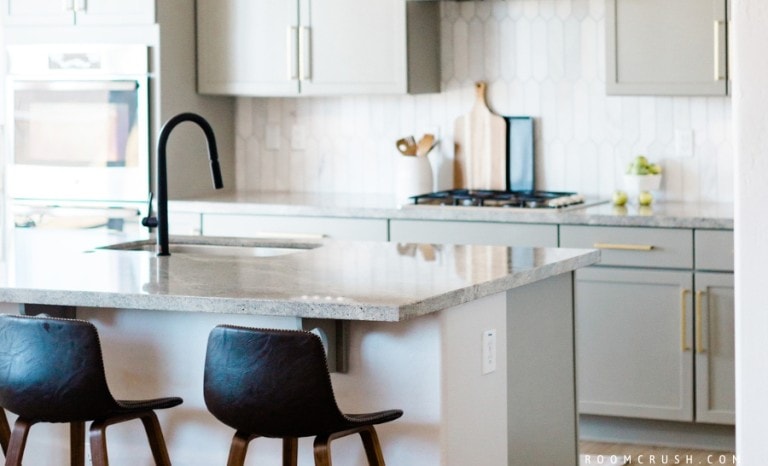Do You Really Save Money With Solar Panels?

What would you say if I told you that you could save money while helping the planet?
Going green is probably the best thing to do right now to fight global warming and cut some expenses.
An excellent example of this is deciding to install solar panels in your home. It sounds like a good idea, as you don’t have to pay for electricity anymore, but do solar panels work the way people say they do?
This site uses ads and affiliate content as an Amazon associate earning on qualifying purchases. Disclosure.
Keep reading this article and learn everything there is to know about saving money with solar panels.

What Is Home Solar Power?
Many homeowners opt for installing solar power in their homes to save up the money they usually invest in buying electricity. This way, they can gain other benefits, such as helping the environment and increasing their home’s value.
Remember that before installing these services, you should consider all the installation and maintenance costs these devices demand to keep being functional.
If you do it the right way, you can even resell some energy and earn quite some money back. Keep in mind that your home should meet specific requirements for solar panels to be rentable, and make sure you understand all the factors involved.
Understanding Solar Power
We’ve been using solar power since the 1950s, but at first, it was a costly option that could only be used by the wealthiest people and organizations. Nowadays, we pay more attention to global warming and its effects, and more people have been looking into alternative energy sources, including solar energy.
It is important to mention that solar energy is still a costly option for regular households, as you’re going to need to install several panels to produce the required energy to use all your electronics without issue.
Do Solar Panels Save Money?
Yes, solar panels can save money as you don’t need to pay your electricity bills anymore, assuming you’re producing enough energy to run your household.
The main goal that people who install solar panels have is to recover their investment through the electric bills money they stop paying each month. These panels also add more value to your property once you decide to move out and sell it.
How Much Do Solar Panels Save?
Now that it is settled that solar panels can help you save money, you might be interested in knowing how much exactly you’re going to be saving, but this is going to change depending on your state.
The first thing you need to do is find out how much your state charges per kilowatt-hour and calculate how much energy you spend each month. Then you do the math between those two amounts, and you’re going to find how much money you’re saving each month.
Keep in mind that, on average, Americans spend around $1,500 each year on electricity. My family pays a little more than that so I’ll use our monthly electricity bill of $245 as an example.
If you’re leasing solar panels for $215 a month for 15 years but your electricity costs were $245 per month pre-solar panels, you’re saving $30 a month on energy, plus if you sell your home you get to benefit from the increase in property value solar panels give.
How Much Do Solar Panels Cost?
Another reason why some homeowners don’t install solar panels is that they don’t come cheap. The average market price is between $10,000 and $26,000, which is going to depend on how many panels you need to create enough electricity for your home.
If you still want to find out how much it would cost to install solar panels in your home, the first thing you need is to determine how many kilowatts you need, as this is going to define the number of panels you have to install.
You may also want to install a battery pack so that your panels can charge the home battery up during the day so you’ll have saved energy to use in the evening when energy usage is highest. These battery packs can cost between $7,000 to $14,000 per storage battery.
You should also look into the different federal and state tax credits that may be available for green energy. This can help offset some of the major upfront costs of solar panels.
How Does Solar Energy Save Money?
There are several reasons to invest in solar power. Aside from being good for the environment, it is perfect if you live in an area with high energy rates.
Take a look at the following financial reasons to get solar panels for your home.
- Solar power can be resold at high rates
- The installment prices have fallen considerably throughout the years
- It is a long-term investment that’s going to eventually save you some money
- You don’t have to pay your electricity bills anymore
- Solar panels don’t require much maintenance
Are Solar Panels Efficient?
The efficiency is going to depend on the quality of the solar panels you buy. The panels are made out of solar cells attached to a circuit that converts the light into electricity.
Solar panels can only create electricity while they’re being hit by direct sunlight, which is why you must place them strategically on your roof. Keep in mind that a regular solar panel converts 22% of the energy it receives into electricity, which is why you usually need a lot of panels to completely fuel your house.
How Long Does It Take to Recover Your Investment?
If you’re looking to recover your investment in the short term, then you’re going to be disappointed. Getting back your initial investment can take anywhere from seven to 12 years.
This is the reason why it isn’t a good idea to install solar panels if you’re not planning to live in that house for at least 10 more years, as it would be a waste of money. You may barely even get a profit when selling your home if you add the extra cost of panels to your home’s price because of the solar panels.
Requirements for Getting Solar Panels
Remember that not all houses can get solar panels, as you need to meet certain requirements to do it properly. Some of those requirements are the following.
- Make sure your roof is predominantly facing south. Otherwise, you may not get the amount of sunlight you need, making your solar panels less effective
- Between 10 AM and four PM, your roof should be in direct sunlight, without any shadow over it. Some shadow is allowed during early or late hours, but not during peak daylight
- Make sure your roof is wide enough, as solar panels tend to take up around two square meters each, and if you’re installing several, your roof must be able to fit them all
- A damaged roof isn’t going to be able to endure solar panels, which is why it is crucial to have your roof professionally inspected and repaired before the installation day
- Diagonal roofs are the best for solar panels, as they allow them to catch the most sunlight throughout the day, but you can still place them in flat roofs for some extra money
- The best part of installing solar panels is that you don’t need any permits to do it unless your building has unique requirements that need to be previously approved by the city council or any other local authority
Do Solar Panels Increase Home Value?
One of the best perks you get when installing solar panels in your house is increasing the value of your property by at least four percent. This is going to ensure you get at least part of your investment back if you decide to sell your house before the 10-year mark previously mentioned.
Financing Solar Panels
It is possible to get solar panels for your home and not buy them with your own money. Keep reading to know more about how to finance solar panels.
Personal Loan
This is an unsecured loan that can be easy to get if you have a good credit score, but if you don’t, just get a soft credit check before to see if you qualify for it. Remember to try to get the lowest interest rates possible.
If you get high rates, you should consider improving your credit score before asking for a loan.
Government Loans
Some countries offer government loans or tax bonuses for installing solar opanels on your home. These loans allow you to upgrade your house’s electric system with federal money.
Pros and Cons of Solar Panels for Your Home
Now you know everything about installing solar panels to save some money, but you must consider several pros and cons before investing your funds in renewable energies. Keep reading to find out more about this.
Pros
- You can lower your carbon footprint
- The energy can be resold through net metering
- Certain tax breaks may apply to you
Cons
- High costs
- Solar panels only work in direct sunlight
- It needs maintenance
- Some tax breaks may expire overtime
Can a House Run on Solar Power Alone?
Most of the time, it isn’t possible, as solar power only works when receiving direct daylight, and this could cause you to end up without electricity during the nighttime or on cloudy days.
You could fix this by using rechargeable batteries, but this option is often quite expensive ($7k-$14k per battery). The chances are that you’re going to rely on the grid every once in a while.
Bottom Line
After reading this article, you’re an expert on using solar panels to save some money, and you can decide whether this is a good idea for your home or not.
Please remember to always consider all options and make choices that are going to benefit you in the long run.
One main factor is how long you plan on staying in your current home. It takes close to 10 years for you to make the cost of the solar panel money back so if you plan on moving before then, it may not make financial sense.
But if you plan on sticking around and the energy savings are positive, solar panels may make sense for you.
Related Articles:








